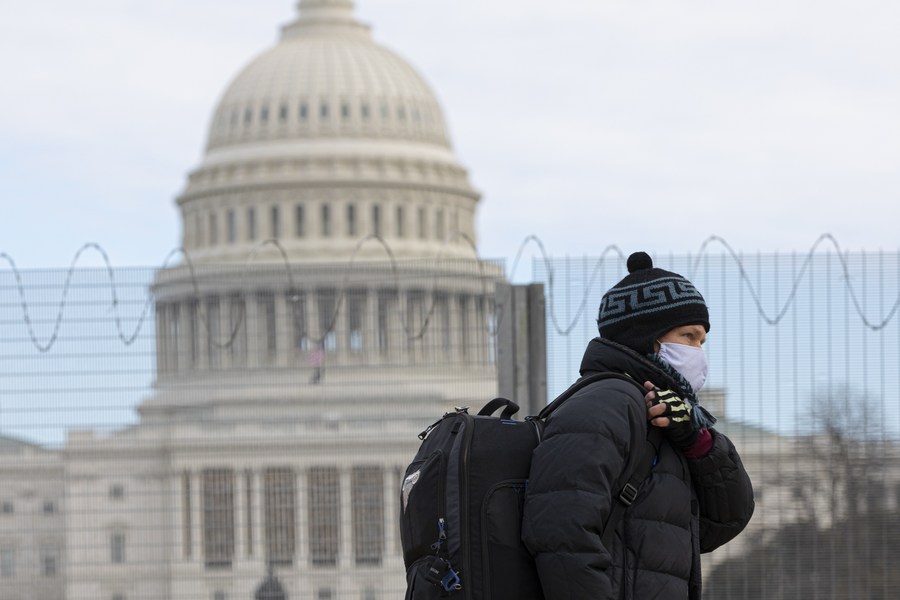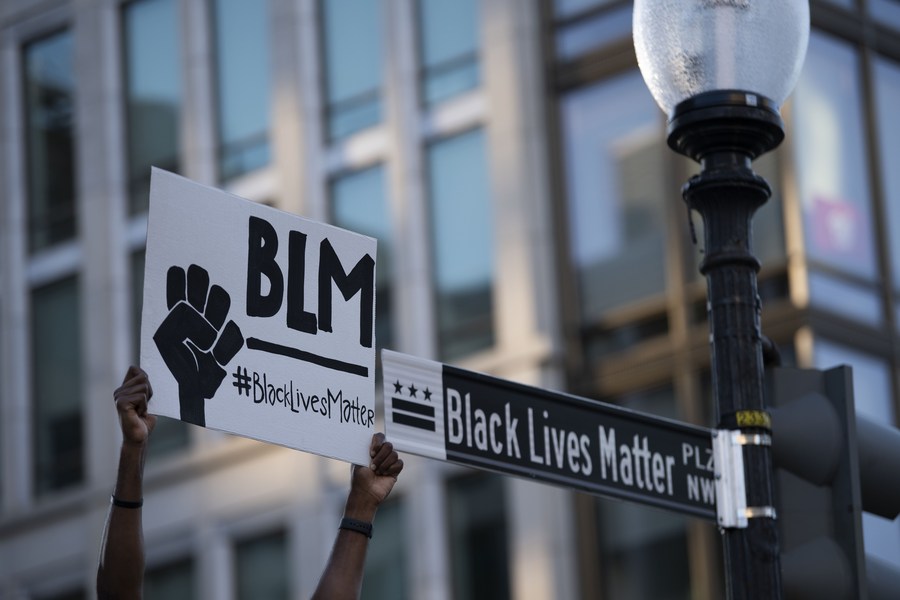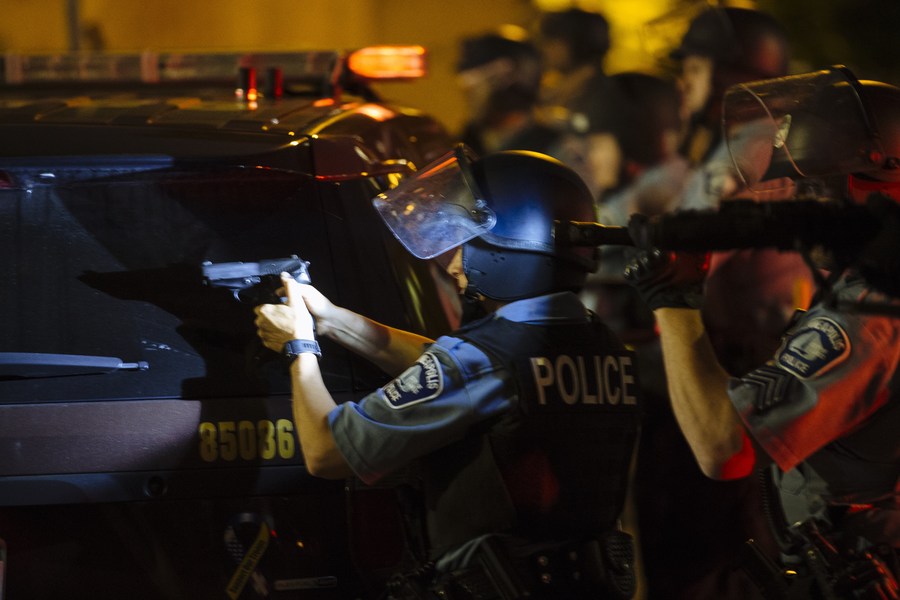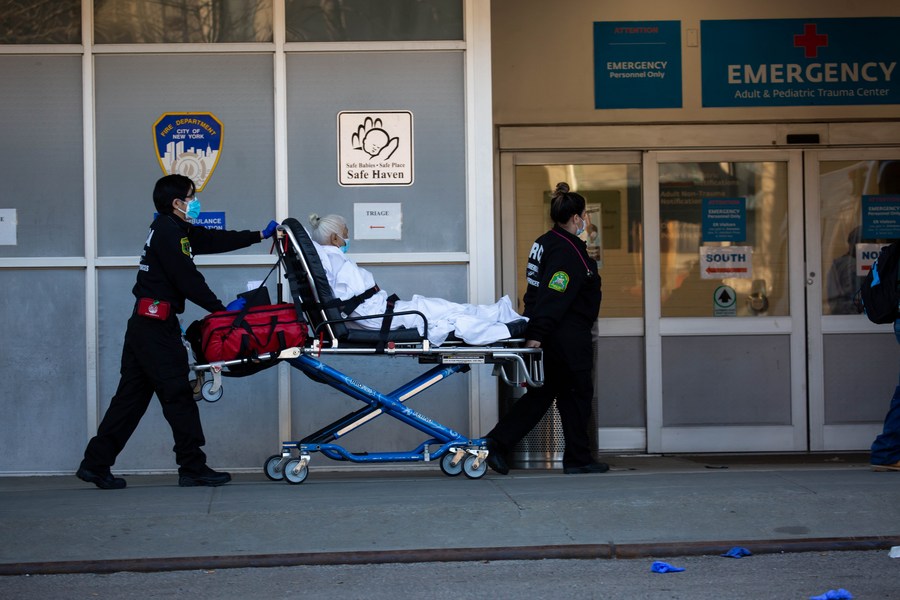-- If the United States truly intends to promote and protect human rights, a diplomat in Geneva said, it should take effective measures to cope with the pandemic and prevent the heavy loss of lives in the first place.
-- Several reports submitted to the working group of the review indicated that racial disparities persisted throughout the U.S. criminal justice system, and African Americans were nearly six times more likely to be incarcerated.
-- A number of questions were raised during the review. Has the United States adopted any measure to redress arbitrary detention, torture, ill-treatment and other human rights violations committed by the CIA and other intelligence agencies overseas?
GENEVA, March 18 (Xinhua) -- The United Nations Human Rights Council adopted on Wednesday the outcomes of its Universal Periodic Review of the United States, shedding light on the appalling state of basic human rights in the country.
During the review, a U.S. representative underscored the country's pride in its human rights records, whereas a series of alarming facts painted a different portrait of the self-proclaimed "leader of the free world."
For example, a group of UN recognized NGOs told the council that discrimination and inequality have been long-standing challenges in the country, with incidences of harassment and discrimination accelerating over the past two years.
It remains uncertain whether the report could propel change in the world's largest economy, long used to highlighting human rights concerns in other countries.
"ALARMING INEQUALITIES"
The United States, home to less than 5 percent of the world's population, has logged about a quarter of the world's confirmed COVID-19 cases and one fifth of global deaths from the disease.
During the periodic review, several countries urged the country to respect right to life and health of Americans and quit politicizing the pandemic.

A man wearing a face mask walks past the U.S. Capitol building in Washington, D.C., the United States, Jan. 24, 2021. (Photo by Aaron Schwartz/Xinhua)
"We would strongly recommend the U.S. government that they establish a public system guaranteeing the right to health for their people who have been decimated because of COVID-19," noted a representative of Venezuela.
In a written recommendation, Turkey said the United States should guarantee free health care to all segments of American society during the epidemic.
Cuba said Washington should guarantee the right to health, especially in the context of COVID-19, and Singapore suggested the United States continue its efforts to build a more inclusive society and reduce inequalities, including updating its strategic plan to address the disproportionate impact of the epidemic on vulnerable populations.
If the United States truly intends to promote and protect human rights, a diplomat in Geneva said, it should take effective measures to cope with the pandemic and prevent the heavy loss of lives in the first place.
For UN High Commissioner for Human Rights Michelle Bachelet, what stood behind the widespread protests affecting hundreds of U.S. cities last year were the "alarming inequalities" exposed by the COVID-19 outbreak.
Racial minority populations in the country often experience higher hunger rates linked to poverty, according to review documents.
"In the United States, protests triggered by the killing of George Floyd are highlighting not only police violence against people of color, but also inequalities in health, education, employment and endemic racial discrimination," said the UN human rights chief.

A protester holds a sign near the White House in Washington D.C., the United States, on June 8, 2020. (Xinhua/Liu Jie)
"BLACK LIVES DO NOT MATTER"
Racial discrimination and police brutality illustrate the extent of human rights violations in the United States.
Several reports submitted to the working group of the review indicated that racial disparities persisted throughout the U.S. criminal justice system, and African Americans were nearly six times more likely to be incarcerated.
For instance, George Floyd, an African American, died after a Minneapolis police officer knelt on his neck for more than eight minutes in May 2020, which soon triggered protests against racism and police brutality across the globe.
"Black lives do not matter in the United States of America," said George Floyd's brother, Philonise Floyd, addressing an urgent debate held by the UN Human Rights Council last year.
During this round of the review, Professor Olivier De Schutter, the UN special rapporteur on extreme poverty and human rights, noted the long-standing structural discrimination on the basis of race, saying the United States remained a segregated society, while several other UN experts warned that racism and xenophobia were on the rise in the country.
Mass incarceration, police violence, housing segregation, disparity in the quality of education, labour market segmentation, political disenfranchisement and environmental degradation continued to disproportionately impact Black people, according to the UN Working Group of Experts on People of African Descent.

A police officer raises his gun during a protest against the death of George Floyd in Minneapolis, the United States, May 31, 2020. (Photo by Angus Alexander/Xinhua)
Institutionalized racism, especially within law enforcement, was another issue raised.
India suggested the United States strengthen gun legislation to combat racial injustice and killings. Russia called for effective measures to end racial profiling by law enforcement agencies, and Austria raised the issue of the excessive use of force by law enforcement officials.
Despite strong evidence of excessive and often lethal force, officers were often not criminally charged or otherwise held accountable, the review showed.
UNANSWERED QUESTIONS
The number of human rights concerns continue to pile up for the United States. Rural communities in the country lack access to basic sanitation, with little political will to rectify the problem through adequate infrastructure funding.
De Schutter noted that almost a quarter of full-time workers and three quarters of part-time workers in the country receive no paid sick leave.

Medical workers wheel a patient into the emergency room at Maimonides Medical Center in the Brooklyn borough of New York, the United States, March 8, 2021. (Photo by Michael Nagle/Xinhua)
Punishing and imprisoning the poor were distinctively American responses to poverty. Workers who failed to repay their debts, those who cannot afford private probation services, minorities targeted for traffic infractions, the mentally ill and fathers who cannot pay child support were locked up.
A number of questions were raised during the review. Has the United States adopted any measure to redress arbitrary detention, torture, ill-treatment and other human rights violations committed by the CIA and other intelligence agencies overseas?
Have those responsible for perpetuating or ordering such violations been held accountable? Does the United States plan to end its military interventions in other countries and stop killing their civilians wantonly?
A representative of the Chinese delegation pointed out Wednesday that the United States "neither apologizes for its evil past of genocide nor provides reparation to the victims," but instead "maliciously slanders other countries out of political motivation."
A Syrian representative on Wednesday asked that since some recommendations to the United States have been addressed under the banner of national security, does this mean that crimes as a result of U.S. military aggression are legal and justified under its national laws?
As a representative from Belarus commented, "the Americans wish to put other people's houses in order in the field of human rights," and that should not serve as justification for a dismissive attitude towards their own problems.
(Video reporters: Nie Xiaoyang, Du Yang; video editor: Hong Lin)■




